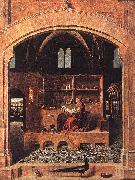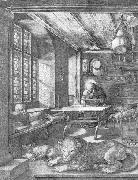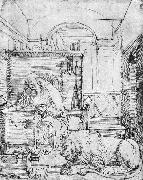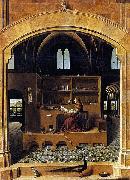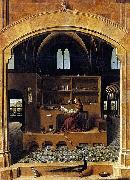Wholesale Oil Painting No Minimum |
|||||||||||
|
|
|||||||||||

|
|||||||||||
|
|
|
||||||||
Antonello da Messina1430-1479 Italian Antonello da Messina Galleries Antonello was born at Messina around 1429-1431, to Giovanni de Antonio Mazonus and Garita (Margherita). He was probably apprenticed in his native city and in Palermo. Around the year 1450, according to a 1524 letter of the Neapolitan humanist Pietro Summonte,[1] he was a pupil of the painter Niccol?? Colantonio at Naples, then one of the most active centres of Renaissance arts. Around 1455 he painted the so-called Sibiu Crucifixion, which was inspired by the Flemish Calvaries and is housed in the Muzeul de Art?? in Bucharest. Of the same years is the Crucifixion in the Royal Museum of Antwerp: his early works shows a marked Flemish influence, which it is now understood he derived from his master Colantonio and from works by Rogier van der Weyden and Jan van Eyck that belonged to Colantonio's patron, Alfonso V of Aragon; his biographer Vasari remarked that Antonello saw at Naples an oil painting by Jan Van Eyck (the "Lomellini Tryptych") belonging to King Alphonso of Aragon; Vasari's further narrative, that being struck by the new method, set out for The Netherlands to acquire a knowledge of the process from Van Eyck's disciples is discredited today. Another theory, supported only by vague documentary evidence, suggests that in 1456 Antonello visited Milan, where he might have met Van Eyck's most accomplished follower, Petrus Christus. Since Antonello was one of the first Italians to master Eyckian oil painting, and Christus was the first Netherlandish painter to learn Italian linear perspective, their meeting is a tempting answer to both questions. But in fact, neither artist is known for certain to have been in Milan at the time. The following year, Antonello received his first commission as an independent artist, a banner for the Confraternit?? di San Michele dei Gerbini in Reggio Calabria. At this date, he was already married, and his son Jacobello had been born. In 1460, his father is mentioned leasing a brigantine to bring back Antonello and his family from Amaltea, a town in Calabria. In that year, Antonello painted the so-called Salting Madonna, in which standard iconography and Flemish style are backed by a greater attention in the volumetric proportions of the figures, probably coming from his knowledge of some works by Piero della Francesca. Also from around 1460 are the two small panels depicting Abraham Served by the Angels and St. Jerome Penitent now in the Museo Nazionale della Magna Grecia in Reggio Calabria. In 1461 his younger brother Giordano entered Antonello's workshop, signing a three-years' contract. Of that year is a Madonna with Child for the Messinese nobleman Giovanni Mirulla, now lost. Between 1465-1470, Antonello finished a Portrait of a Man now at Cefal??. His portraits are noteworthy for his characteristic use of the three-quarter view, typical of the Flemish School, whereas almost all Italian painters adopted the medal profile pose. Antonello travelled to Venice around 1470, to see Giovanni Bellini's paintings. The Palermo Annunciation.In this year he executed his first signed and dated work, the Salvator Mundi. Back at Sicily, Antonello finished the St. Gregory's Polyptych. In 1474, he painted the Annunciation, now in Syracuse, and the St. Jerome in His Study, one of his most famous paintings. The following year he began his regular sojourn in Venice, where he remained until the fall of 1476. His works of this period begin to show a greater attention to the human figure, regarding both anatomy and expressivity, according to the influence of Piero della Francesca and Bellini. His most famous pictures dating from this period include the Condottiero (Louvre, illustration), the San Cassiano Altarpiece and the St. Sebastian (see selected works for details). The San Cassiano Altarpiece was especially influential on Venetian painters, as it was one of the first of the large compositions in the sacra conversazione format which was perfected by Giovanni Bellini (Antonello's surviving work in Vienna is only a fragment of the much larger original). Antonello returned briefly to Sicily in 1476, where he painted the famous Virgin Annunciate, now in the Palazzo Abatellis at Palermo. He died at Messina in 1479: his testament dates from February of that year, and he is documented as no longer alive two months later. Some of his last works remained unfinished, but were completed by his son Jacobello. |
||||||||
|
|
||||||||
St Jerome in his Study
St Jerome in his Study Painting ID:: 4828 |
c. 1460
Wood, 46 x 36,5 cm
National Gallery, London
c. 1460 Wood, 46 x 36,5 cm National Gallery, London |
|||||||
|
|
||||||||
Albrecht Durerb.May 21, 1471, Imperial Free City of Nernberg [Germany] d.April 6, 1528, Nernberg Albrecht Durer (May 21, 1471 ?C April 6, 1528) was a German painter, printmaker and theorist from Nuremberg. His still-famous works include the Apocalypse woodcuts, Knight, Death, and the Devil (1513), Saint Jerome in his Study (1514) and Melencolia I (1514), which has been the subject of extensive analysis and interpretation. His watercolours mark him as one of the first European landscape artists, while his ambitious woodcuts revolutionized the potential of that medium. D??rer introduction of classical motifs into Northern art, through his knowledge of Italian artists and German humanists, have secured his reputation as one of the most important figures of the Northern Renaissance. This is reinforced by his theoretical treatise which involve principles of mathematics, perspective and ideal proportions. His prints established his reputation across Europe when he was still in his twenties, and he has been conventionally regarded as the greatest artist of the Renaissance in Northern Europe ever since. |
||||||||
|
|
||||||||
|
|
St Jerome in his Study
St Jerome in his Study Painting ID:: 63602 |
1514 Engraving, 259 x 201 mm Staatliche Kunsthalle, Karlsruhe St Jerome in his Study is stressing the contemplative rather than the active aspect of Christian life. The engraving shows the translator of the Bible deep in thought at his lectern, with the figure of the saint illuminated by sunlight streaming through the window panes into the cosy room. In front of St Jerome are the resting figures of his faithful lion and dog. A skull on the windowsill and an hourglass above the saint are reminders of the transience of life. The astonishing advance in D?rer's printmaking technique is evident when this engraving is compared with his early woodcut of the same subject. D?rer, according to the diary of his trip to the Netherlands during 1521-21, sold or gave away copies of this print more frequently than any of his others. It has been repeatedly asserted that this engraving was to be part of a projected series representing the four human temperaments. Only two others have been so far identified, Melencolia I, and Knight, Death and Devil. Although they correspond in size, D?rer never gave away all three as a set. Occasionally he gave away St Jerome and Melencolia I as a pair. In the last of the three master engravings, D?rer placed particular emphasis on the subtle differentiation of the material qualities of the objects, and the depiction of the interior according to the laws of central perspective, the converging lines of which terminate in the space to the right of the figure of the saint. The design is based on an exact plan of perspective. A certain degree of distortion is due to the fact that the vanishing point is placed close to the margin instead of the centre. This is a peculiarity that can be observed in other works by D?rer.Artist:D?RER, Albrecht Title: St Jerome in his Study Painted in 1501-1550 , German - - graphics : religious 1514 Engraving, 259 x 201 mm Staatliche Kunsthalle, Karlsruhe St Jerome in his Study is stressing the contemplative rather than the active aspect of Christian life. The engraving shows the translator of the Bible deep in thought at his lectern, with the figure of the saint illuminated by sunlight streaming through the window panes into the cosy room. In front of St Jerome are the resting figures of his faithful lion and dog. A skull on the windowsill and an hourglass above the saint are reminders of the transience of life. The astonishing advance in D?rer's printmaking technique is evident when this engraving is compared with his early woodcut of the same subject. D?rer, according to the diary of his trip to the Netherlands during 1521-21, sold or gave away copies of this print more frequently than any of his others. It has been repeatedly asserted that this engraving was to be part of a projected series representing the four human temperaments. Only two others have been so far identified, Melencolia I, and Knight, Death and Devil. Although they correspond in size, D?rer never gave away all three as a set. Occasionally he gave away St Jerome and Melencolia I as a pair. In the last of the three master engravings, D?rer placed particular emphasis on the subtle differentiation of the material qualities of the objects, and the depiction of the interior according to the laws of central perspective, the converging lines of which terminate in the space to the right of the figure of the saint. The design is based on an exact plan of perspective. A certain degree of distortion is due to the fact that the vanishing point is placed close to the margin instead of the centre. This is a peculiarity that can be observed in other works by D?rer.Artist:D?RER, Albrecht Title: St Jerome in his Study Painted in 1501-1550 , German - - graphics : religious |
||||||
|
|
||||||||
Albrecht Durerb.May 21, 1471, Imperial Free City of Nernberg [Germany] d.April 6, 1528, Nernberg Albrecht Durer (May 21, 1471 ?C April 6, 1528) was a German painter, printmaker and theorist from Nuremberg. His still-famous works include the Apocalypse woodcuts, Knight, Death, and the Devil (1513), Saint Jerome in his Study (1514) and Melencolia I (1514), which has been the subject of extensive analysis and interpretation. His watercolours mark him as one of the first European landscape artists, while his ambitious woodcuts revolutionized the potential of that medium. D??rer introduction of classical motifs into Northern art, through his knowledge of Italian artists and German humanists, have secured his reputation as one of the most important figures of the Northern Renaissance. This is reinforced by his theoretical treatise which involve principles of mathematics, perspective and ideal proportions. His prints established his reputation across Europe when he was still in his twenties, and he has been conventionally regarded as the greatest artist of the Renaissance in Northern Europe ever since. |
||||||||
|
|
||||||||
|
|
St Jerome in His Study
St Jerome in His Study Painting ID:: 63642 |
1511 Pen, 190 x 151 mm Biblioteca Ambrosiana, Milan Preliminary study for the woodcut, in which the composition is further simplified and compressed, a large white curtain of diagonal contour playing a decisive role in the change.Artist:D?RER, Albrecht Title: St Jerome in His Study Painted in 1501-1550 , German - - graphics : study 1511 Pen, 190 x 151 mm Biblioteca Ambrosiana, Milan Preliminary study for the woodcut, in which the composition is further simplified and compressed, a large white curtain of diagonal contour playing a decisive role in the change.Artist:D?RER, Albrecht Title: St Jerome in His Study Painted in 1501-1550 , German - - graphics : study |
||||||
|
|
||||||||
Antonello da Messina1430-1479 Italian Antonello da Messina Galleries Antonello was born at Messina around 1429-1431, to Giovanni de Antonio Mazonus and Garita (Margherita). He was probably apprenticed in his native city and in Palermo. Around the year 1450, according to a 1524 letter of the Neapolitan humanist Pietro Summonte,[1] he was a pupil of the painter Niccol?? Colantonio at Naples, then one of the most active centres of Renaissance arts. Around 1455 he painted the so-called Sibiu Crucifixion, which was inspired by the Flemish Calvaries and is housed in the Muzeul de Art?? in Bucharest. Of the same years is the Crucifixion in the Royal Museum of Antwerp: his early works shows a marked Flemish influence, which it is now understood he derived from his master Colantonio and from works by Rogier van der Weyden and Jan van Eyck that belonged to Colantonio's patron, Alfonso V of Aragon; his biographer Vasari remarked that Antonello saw at Naples an oil painting by Jan Van Eyck (the "Lomellini Tryptych") belonging to King Alphonso of Aragon; Vasari's further narrative, that being struck by the new method, set out for The Netherlands to acquire a knowledge of the process from Van Eyck's disciples is discredited today. Another theory, supported only by vague documentary evidence, suggests that in 1456 Antonello visited Milan, where he might have met Van Eyck's most accomplished follower, Petrus Christus. Since Antonello was one of the first Italians to master Eyckian oil painting, and Christus was the first Netherlandish painter to learn Italian linear perspective, their meeting is a tempting answer to both questions. But in fact, neither artist is known for certain to have been in Milan at the time. The following year, Antonello received his first commission as an independent artist, a banner for the Confraternit?? di San Michele dei Gerbini in Reggio Calabria. At this date, he was already married, and his son Jacobello had been born. In 1460, his father is mentioned leasing a brigantine to bring back Antonello and his family from Amaltea, a town in Calabria. In that year, Antonello painted the so-called Salting Madonna, in which standard iconography and Flemish style are backed by a greater attention in the volumetric proportions of the figures, probably coming from his knowledge of some works by Piero della Francesca. Also from around 1460 are the two small panels depicting Abraham Served by the Angels and St. Jerome Penitent now in the Museo Nazionale della Magna Grecia in Reggio Calabria. In 1461 his younger brother Giordano entered Antonello's workshop, signing a three-years' contract. Of that year is a Madonna with Child for the Messinese nobleman Giovanni Mirulla, now lost. Between 1465-1470, Antonello finished a Portrait of a Man now at Cefal??. His portraits are noteworthy for his characteristic use of the three-quarter view, typical of the Flemish School, whereas almost all Italian painters adopted the medal profile pose. Antonello travelled to Venice around 1470, to see Giovanni Bellini's paintings. The Palermo Annunciation.In this year he executed his first signed and dated work, the Salvator Mundi. Back at Sicily, Antonello finished the St. Gregory's Polyptych. In 1474, he painted the Annunciation, now in Syracuse, and the St. Jerome in His Study, one of his most famous paintings. The following year he began his regular sojourn in Venice, where he remained until the fall of 1476. His works of this period begin to show a greater attention to the human figure, regarding both anatomy and expressivity, according to the influence of Piero della Francesca and Bellini. His most famous pictures dating from this period include the Condottiero (Louvre, illustration), the San Cassiano Altarpiece and the St. Sebastian (see selected works for details). The San Cassiano Altarpiece was especially influential on Venetian painters, as it was one of the first of the large compositions in the sacra conversazione format which was perfected by Giovanni Bellini (Antonello's surviving work in Vienna is only a fragment of the much larger original). Antonello returned briefly to Sicily in 1476, where he painted the famous Virgin Annunciate, now in the Palazzo Abatellis at Palermo. He died at Messina in 1479: his testament dates from February of that year, and he is documented as no longer alive two months later. Some of his last works remained unfinished, but were completed by his son Jacobello. |
||||||||
|
|
||||||||
|
|
St Jerome in his Study
St Jerome in his Study Painting ID:: 84580 |
Date ca. 1460(1460)
Medium Oil on wood
Dimensions Height: 46 cm (18.1 in). Width: 36 cm (14.2 in).
cjr Date ca. 1460(1460) Medium Oil on wood Dimensions Height: 46 cm (18.1 in). Width: 36 cm (14.2 in). cjr |
||||||
|
|
||||||||
Antonello da Messina1430-1479 Italian Antonello da Messina Galleries Antonello was born at Messina around 1429-1431, to Giovanni de Antonio Mazonus and Garita (Margherita). He was probably apprenticed in his native city and in Palermo. Around the year 1450, according to a 1524 letter of the Neapolitan humanist Pietro Summonte,[1] he was a pupil of the painter Niccol?? Colantonio at Naples, then one of the most active centres of Renaissance arts. Around 1455 he painted the so-called Sibiu Crucifixion, which was inspired by the Flemish Calvaries and is housed in the Muzeul de Art?? in Bucharest. Of the same years is the Crucifixion in the Royal Museum of Antwerp: his early works shows a marked Flemish influence, which it is now understood he derived from his master Colantonio and from works by Rogier van der Weyden and Jan van Eyck that belonged to Colantonio's patron, Alfonso V of Aragon; his biographer Vasari remarked that Antonello saw at Naples an oil painting by Jan Van Eyck (the "Lomellini Tryptych") belonging to King Alphonso of Aragon; Vasari's further narrative, that being struck by the new method, set out for The Netherlands to acquire a knowledge of the process from Van Eyck's disciples is discredited today. Another theory, supported only by vague documentary evidence, suggests that in 1456 Antonello visited Milan, where he might have met Van Eyck's most accomplished follower, Petrus Christus. Since Antonello was one of the first Italians to master Eyckian oil painting, and Christus was the first Netherlandish painter to learn Italian linear perspective, their meeting is a tempting answer to both questions. But in fact, neither artist is known for certain to have been in Milan at the time. The following year, Antonello received his first commission as an independent artist, a banner for the Confraternit?? di San Michele dei Gerbini in Reggio Calabria. At this date, he was already married, and his son Jacobello had been born. In 1460, his father is mentioned leasing a brigantine to bring back Antonello and his family from Amaltea, a town in Calabria. In that year, Antonello painted the so-called Salting Madonna, in which standard iconography and Flemish style are backed by a greater attention in the volumetric proportions of the figures, probably coming from his knowledge of some works by Piero della Francesca. Also from around 1460 are the two small panels depicting Abraham Served by the Angels and St. Jerome Penitent now in the Museo Nazionale della Magna Grecia in Reggio Calabria. In 1461 his younger brother Giordano entered Antonello's workshop, signing a three-years' contract. Of that year is a Madonna with Child for the Messinese nobleman Giovanni Mirulla, now lost. Between 1465-1470, Antonello finished a Portrait of a Man now at Cefal??. His portraits are noteworthy for his characteristic use of the three-quarter view, typical of the Flemish School, whereas almost all Italian painters adopted the medal profile pose. Antonello travelled to Venice around 1470, to see Giovanni Bellini's paintings. The Palermo Annunciation.In this year he executed his first signed and dated work, the Salvator Mundi. Back at Sicily, Antonello finished the St. Gregory's Polyptych. In 1474, he painted the Annunciation, now in Syracuse, and the St. Jerome in His Study, one of his most famous paintings. The following year he began his regular sojourn in Venice, where he remained until the fall of 1476. His works of this period begin to show a greater attention to the human figure, regarding both anatomy and expressivity, according to the influence of Piero della Francesca and Bellini. His most famous pictures dating from this period include the Condottiero (Louvre, illustration), the San Cassiano Altarpiece and the St. Sebastian (see selected works for details). The San Cassiano Altarpiece was especially influential on Venetian painters, as it was one of the first of the large compositions in the sacra conversazione format which was perfected by Giovanni Bellini (Antonello's surviving work in Vienna is only a fragment of the much larger original). Antonello returned briefly to Sicily in 1476, where he painted the famous Virgin Annunciate, now in the Palazzo Abatellis at Palermo. He died at Messina in 1479: his testament dates from February of that year, and he is documented as no longer alive two months later. Some of his last works remained unfinished, but were completed by his son Jacobello. |
||||||||
|
|
||||||||
|
|
St Jerome in his Study
St Jerome in his Study Painting ID:: 88443 |
1460(1460)
Medium Oil on wood
cyf 1460(1460) Medium Oil on wood cyf |
||||||
|
|
||||||||
|
Antonello da Messina 1430-1479 Italian Antonello da Messina Galleries Antonello was born at Messina around 1429-1431, to Giovanni de Antonio Mazonus and Garita (Margherita). He was probably apprenticed in his native city and in Palermo. Around the year 1450, according to a 1524 letter of the Neapolitan humanist Pietro Summonte,[1] he was a pupil of the painter Niccol?? Colantonio at Naples, then one of the most active centres of Renaissance arts. Around 1455 he painted the so-called Sibiu Crucifixion, which was inspired by the Flemish Calvaries and is housed in the Muzeul de Art?? in Bucharest. Of the same years is the Crucifixion in the Royal Museum of Antwerp: his early works shows a marked Flemish influence, which it is now understood he derived from his master Colantonio and from works by Rogier van der Weyden and Jan van Eyck that belonged to Colantonio's patron, Alfonso V of Aragon; his biographer Vasari remarked that Antonello saw at Naples an oil painting by Jan Van Eyck (the "Lomellini Tryptych") belonging to King Alphonso of Aragon; Vasari's further narrative, that being struck by the new method, set out for The Netherlands to acquire a knowledge of the process from Van Eyck's disciples is discredited today. Another theory, supported only by vague documentary evidence, suggests that in 1456 Antonello visited Milan, where he might have met Van Eyck's most accomplished follower, Petrus Christus. Since Antonello was one of the first Italians to master Eyckian oil painting, and Christus was the first Netherlandish painter to learn Italian linear perspective, their meeting is a tempting answer to both questions. But in fact, neither artist is known for certain to have been in Milan at the time. The following year, Antonello received his first commission as an independent artist, a banner for the Confraternit?? di San Michele dei Gerbini in Reggio Calabria. At this date, he was already married, and his son Jacobello had been born. In 1460, his father is mentioned leasing a brigantine to bring back Antonello and his family from Amaltea, a town in Calabria. In that year, Antonello painted the so-called Salting Madonna, in which standard iconography and Flemish style are backed by a greater attention in the volumetric proportions of the figures, probably coming from his knowledge of some works by Piero della Francesca. Also from around 1460 are the two small panels depicting Abraham Served by the Angels and St. Jerome Penitent now in the Museo Nazionale della Magna Grecia in Reggio Calabria. In 1461 his younger brother Giordano entered Antonello's workshop, signing a three-years' contract. Of that year is a Madonna with Child for the Messinese nobleman Giovanni Mirulla, now lost. Between 1465-1470, Antonello finished a Portrait of a Man now at Cefal??. His portraits are noteworthy for his characteristic use of the three-quarter view, typical of the Flemish School, whereas almost all Italian painters adopted the medal profile pose. Antonello travelled to Venice around 1470, to see Giovanni Bellini's paintings. The Palermo Annunciation.In this year he executed his first signed and dated work, the Salvator Mundi. Back at Sicily, Antonello finished the St. Gregory's Polyptych. In 1474, he painted the Annunciation, now in Syracuse, and the St. Jerome in His Study, one of his most famous paintings. The following year he began his regular sojourn in Venice, where he remained until the fall of 1476. His works of this period begin to show a greater attention to the human figure, regarding both anatomy and expressivity, according to the influence of Piero della Francesca and Bellini. His most famous pictures dating from this period include the Condottiero (Louvre, illustration), the San Cassiano Altarpiece and the St. Sebastian (see selected works for details). The San Cassiano Altarpiece was especially influential on Venetian painters, as it was one of the first of the large compositions in the sacra conversazione format which was perfected by Giovanni Bellini (Antonello's surviving work in Vienna is only a fragment of the much larger original). Antonello returned briefly to Sicily in 1476, where he painted the famous Virgin Annunciate, now in the Palazzo Abatellis at Palermo. He died at Messina in 1479: his testament dates from February of that year, and he is documented as no longer alive two months later. Some of his last works remained unfinished, but were completed by his son Jacobello. St Jerome in his Study 1460(1460) Medium Oil on wood cyf |
||||||||
|
|
||||||||
|
Prev Next
|
||||||||
|
|
||||||||
|
Related Paintings to Antonello da Messina :. |
||||||||
|
|
||||||||
|
CONTACT US |
